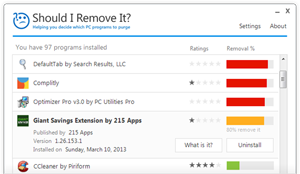Import table
crypt32.dll
CryptMsgClose, CertFreeCertificateContext, CertGetNameStringA, CertFindCertificateInStore, CryptMsgGetParam, CryptQueryObject, CertAddCertificateContextToStore, CertSetCertificateContextProperty, CertCreateCertificateContext, CertOpenStore, CertAddEncodedCertificateToStore, CertGetSubjectCertificateFromStore, CertEnumCertificatesInStore, CertDeleteCertificateFromStore, CertAddEncodedCRLToStore, CertFreeCRLContext, CertGetCRLFromStore, CertDeleteCRLFromStore, CertGetCertificateContextProperty, CertCloseStore
kernel32.dll
GetCurrentThreadId, FreeLibrary, GetProcAddress, LoadLibraryA, GetSystemDirectoryA, GetComputerNameA, GlobalFree, HeapAlloc, HeapFree, GetProcessHeap, GetVersionExA, CreateProcessA, TerminateProcess, OpenProcess, GetExitCodeProcess, ReadFile, WriteFile, GetStartupInfoA, DuplicateHandle, GetCurrentProcess, SetStdHandle, CreatePipe, GetStdHandle, CreateDirectoryA, RemoveDirectoryA, DeleteFileA, MoveFileA, GetCurrentDirectoryA, SetCurrentDirectoryA, FindFirstFileA, FindNextFileA, SetConsoleCtrlHandler, CopyFileA, GetExitCodeThread, CreateThread, LocalFree, LocalAlloc, lstrlenA, WritePrivateProfileStringA, GetPrivateProfileIntA, GetWindowsDirectoryA, OutputDebugStringA, MultiByteToWideChar, WideCharToMultiByte, GetTickCount, QueryPerformanceCounter, GetLocalTime, GetProcessTimes, GetThreadTimes, GetCurrentThread, GlobalMemoryStatus, GetProcessWorkingSetSize, GetModuleHandleA, GetCurrentProcessId, SetEndOfFile, SetFilePointer, GetFileAttributesA, FlushFileBuffers, LockFile, UnlockFile, ReleaseMutex, CreateMutexA, CreateEventA, WaitForSingleObject, ResetEvent, GetModuleFileNameA, OpenEventA, Sleep, CreateFileA, DeviceIoControl, GetLastError, CloseHandle, SetEvent, GetFileSize, GetDiskFreeSpaceA, InitializeCriticalSection, DeleteCriticalSection, LeaveCriticalSection, EnterCriticalSection, RaiseException, LCMapStringA, FindClose, InterlockedExchange, LCMapStringW, PeekNamedPipe
msvcirt.dll
_mtlock, _mtunlock
msvcp60.dll
DllMain
msvcrt.dll
DllMain
rasapi32.dll
RasEnumEntriesA
vpnapi.dll
vpn_get_service_start_event
wininet.dll
InternetSetOptionA, InternetQueryOptionA
Export table
IsdGetCapability
IsdGetRandomNumber
IsdGetStatistic
IsdTestRandomGenerator

